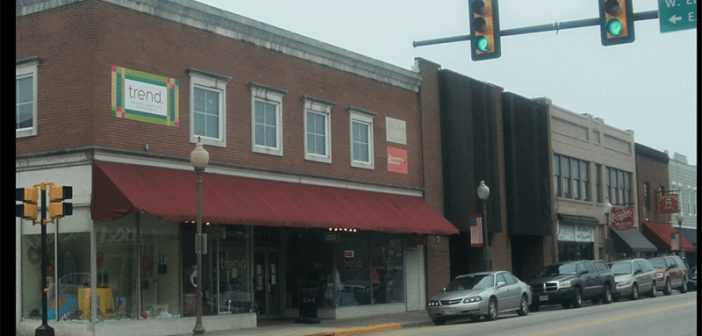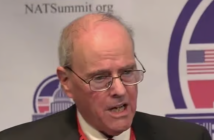The following article was originally posted on The Bull Elephant website.
For many years my husband and I lived in Richmond where we settled down, worked and raised a family. During 2018, we decided to retire to Blackstone, a small town in Southside Virginia and renovated an old house and embraced rural life. When we moved here, it was practically Mayberry, R.F.D., cliché as this sounds. Very friendly people. . . a much slower pace. . . a daily wildlife show of birds, deer, and rabbits in our yard. . . Errands took about 20 minutes, we rarely had to wait for anything, there was always a parking spot, and you could count on bumping into someone you knew most of the time you went out. And I felt safe.
Not anymore. Urban problems have come to small town America: one of the legacies of the Biden Administration. In many ways Blackstone is typical of what so many places are dealing with.
Besides realizing crime was worse, I concluded too many people were on welfare when they could be working (especially the young); felons often come down here to hide; and locals have seen drug deals on street corners and in parking lots and cemeteries. The Democrats control our General Assembly and since they have made laws more lenient, criminals with serious rap sheets are all over the county. (Part of the problem is the poverty rate is almost 20%.)
Meanwhile, Blackstone is trying to attract more companies for jobs and become a tourist destination since we have museums (Schwartz Tavern and The Robert Thomas Carriage Museum) and some nice restaurants and shops. Not to mention we are 25 miles from Sailor’s Creek, the site of a battle during The Civil War which the Confederates lost so badly General Lee surrendered three days later at Appomattox.
With all this in mind, I decided to do some homework and found out there is actually a lot of good news. For starters we have an excellent police force. Chief Sam Murphy told me we used to have 9,000 to 11,000 calls a year; now we are down to 6,000. Most violations are property crimes: going through cars, larcenies, shoplifting.
Chief Murphy explained most of our serious crime stems from “murders, drugs, home invasions, robberies – even petty stuff like shoplifting are all related to drugs.” Blackstone has 11 officers and one part-timer; another is about to be hired. Being part of the Drug Task Force has helped the area a lot. (From what he told me technology is helping our police, and I will leave it that. This isn’t about Big Brother. It’s about keeping the public safe.)
When I asked him how citizens could help, he explained we need more community involvement. People aren’t willing to be witnesses sometimes because they are afraid, don’t want to be labelled a snitch, or they just don’t like the police.
The town manager, Philip Vannoorbeeck, also gave me reason to think Blackstone is heading in a better direction. They are trying to get a handle on the crime and weed out the troublemakers; through grants and zero interest loans, we have money to replace old sewer systems and update utilities, and community development, like getting rid of blight and building workforce housing, all leads to less crime and poverty. Financially, since Blackstone owns its own electric utility, has the fuel concession at the airfield, and earns a lot of money from things like the meals tax we are “a very full-service community per capita.” Not bad for a town of 3,300. It also doesn’t hurt we have Ft. Pickett, a National Guard base, and a Foreign Affairs Security Training Center (FASTC) in the county.
Our public schools are improving as well. Under the leadership of a new and energetic superintendent, Marcia Martin, student discipline is being focused on, staffing has increased, and there are plans to get the high and middle schools fully accredited.
I also learned from people like Jan Daniel, who owns Ta Da Bakery, that small business owners can help each other. She does what she calls a “tourist pitch” where she talks to customers and makes recommendations for other restaurants and shops to visit. Mrs. Daniel has lived here for five years and says her life hasn’t changed much, and she loves the camaraderie and “It’s quiet. Like a happy town.” She also points out our new mayor, Lafayette Dickens, is doing a wonderful job promoting Blackstone.
If you live in a small town, it is easy to have an impact, so this is my humble advice. If you want things to change for the better, start with a positive attitude. Go meet your town officials and give them ideas and feedback. If you must complain, keep it to the point and constructive; offer some solutions. Thank these individuals for their hard work. Meeting face to face is important: Phone calls, texts, and Facebook don’t have the same impact nowadays.
Disunity is poison to a small community so come up with ways to lead people in a different direction. In Blackstone a group of Republicans and Democrats, who have been deeply divided for years, have started to have breakfast once a month with Mayor Dickens so we can get to know each other better and exchange ideas. I have noticed that when you take a positive step, other people tend to follow suit.



